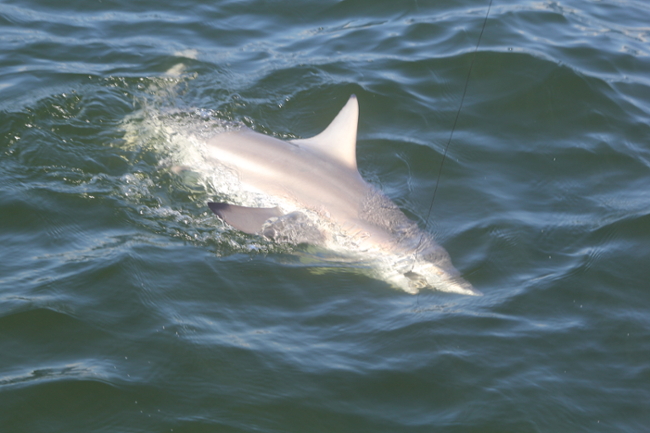Every Week is Shark Week for Texas A&M-Galveston Professor
July 15, 2021
Tweet
By Andréa Bolt, Communications Specialist, Division of Marketing & Communications
Dr. David Wells is over the shark puns, he thinks they’re getting a bit long in the tooth.
Wells, an associate professor in the Department of Marine Biology and head of the Shark Biology and Fisheries Science Lab at Texas A&M University at Galveston, studies the biology and ecology of bony fishes, rays, and sharks.
As a scientist who lives shark week every day, he appreciates what the folks from the networks are trying to accomplish in terms of educating viewers and, more recently, centering on conservation messaging. He knows more than a few of the experts featured during the annual July telethon, many are friends and colleagues.
It’s the added entertainment value he finds somewhat hard to swallow.
“Some of the story lines can be a bit misleading. I know they’ve got to reel in views, but it can be hard for the public to filter what’s truly science for research purposes and what’s purely for entertainment,” he said.
Wells also chuckles a bit at the often-idealized filming conditions.
“What you’re watching on TV is often not a true representation of fieldwork. It’s edited, obviously, so they’re showing you the version where everything goes right, and that’s not real life when it comes to field research. Part of research is reacting to circumstances when things go wrong, when you go offshore and not everyone is feeling great on the vessel, or if equipment is malfunctioning or something breaks. That’s a more typical day in the field.”
What Wells loves about shark week, both in the programming and his profession, is its dynamic nature. That diversity is what hooked him from the beginning.
“No day is like the previous day. Every day is different. You do a project, it's exciting, you finish and move on to another, and so on. The diverse projects and diversity of species we get to work on are the most exciting part of my job for sure.”
It was just yesterday that Wells was out on the water working on an ongoing research project focused on blacktip sharks.
In the nearshore Gulf of Mexico waters, where the blacktips, bull sharks and bonnetheads are the most plentiful, he worked with a small team to learn more about their life history characteristics. A new intern had just come on board and was helping in tagging efforts.
“I enjoy seeing these younger scientists get into the field. This intern is from a landlocked state, and honestly seeing all this from her eyes was a reality check. I’m lucky; I love what I do.”
###
Media contact:Communications Specialist
a_bolt@tamug.edu
More:
Read more about Marine Biology
Read more about Marine Sciences